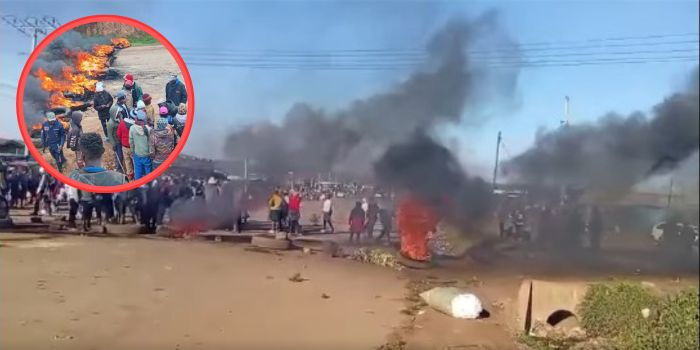”
Tension gripped Mau Narok on Sunday night after violent clashes left several houses torched and the busy Nakuru–Narok highway blocked, disrupting transport and economic activity in the area.
According to locals, the unrest was sparked by longstanding resentment between two communities over contested land issues, which escalated into open confrontation. Residents woke up on Sunday morning to barricades along the road at Mwisho wa Lami trading centre, where angry crowds lit bonfires and obstructed traffic, forcing motorists to seek alternative routes.
The violence disrupted movement between Nakuru and Narok counties, with residents vowing to continue their protests until their grievances were addressed. Witnesses reported that families fled their homes as smoke from burning houses filled the air, heightening fear of further escalation.
However, police have dismissed reports suggesting the violence was ethnic-related. Nakuru County Commander Emmanuel Opuru attributed the unrest to frustrations over a prolonged power blackout in the area, which has lasted more than two months.
“This is just a small matter that we are already in control of. There was a power blackout that had lasted in the area for over two months, so when one section of the aggrieved went out to protest the same, a car was damaged during the standoff. It was from this that the tensions began,” Opuru explained.
He downplayed claims of inter-community conflict, stressing that the situation was under control and that officers had been deployed to restore calm. “The reports suggesting that it is a clash between certain communities are false, and there is nothing like that. We are already on the ground,” he added.
Police have since launched investigations to establish the root causes of the violence and to bring the perpetrators to justice. The County Commander urged residents to remain calm and allow security agencies to restore order.
As calm gradually returned by Monday morning, the Nakuru–Narok road was reopened, although residents remain on edge amid fears of renewed tensions if underlying grievances are not resolved.

